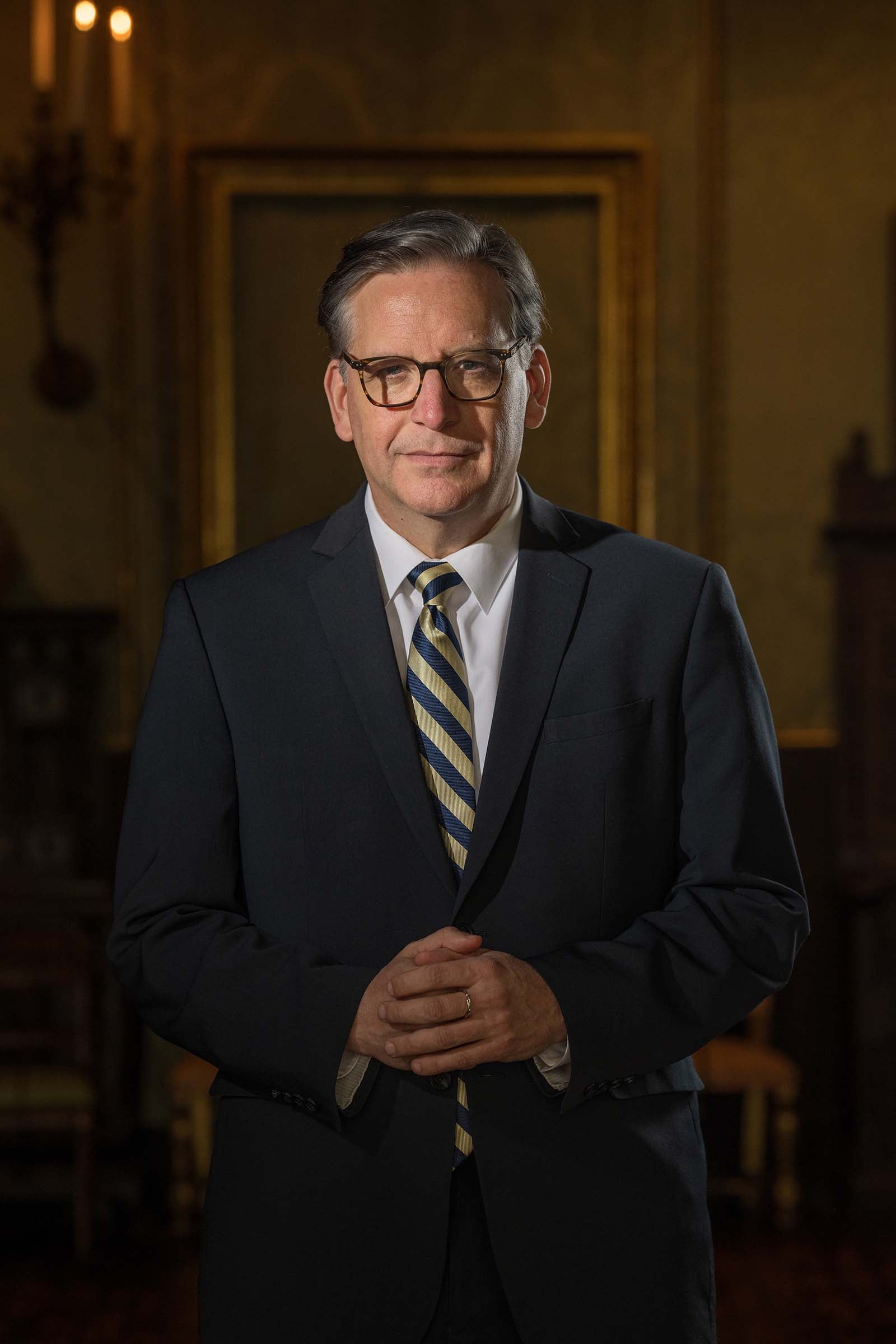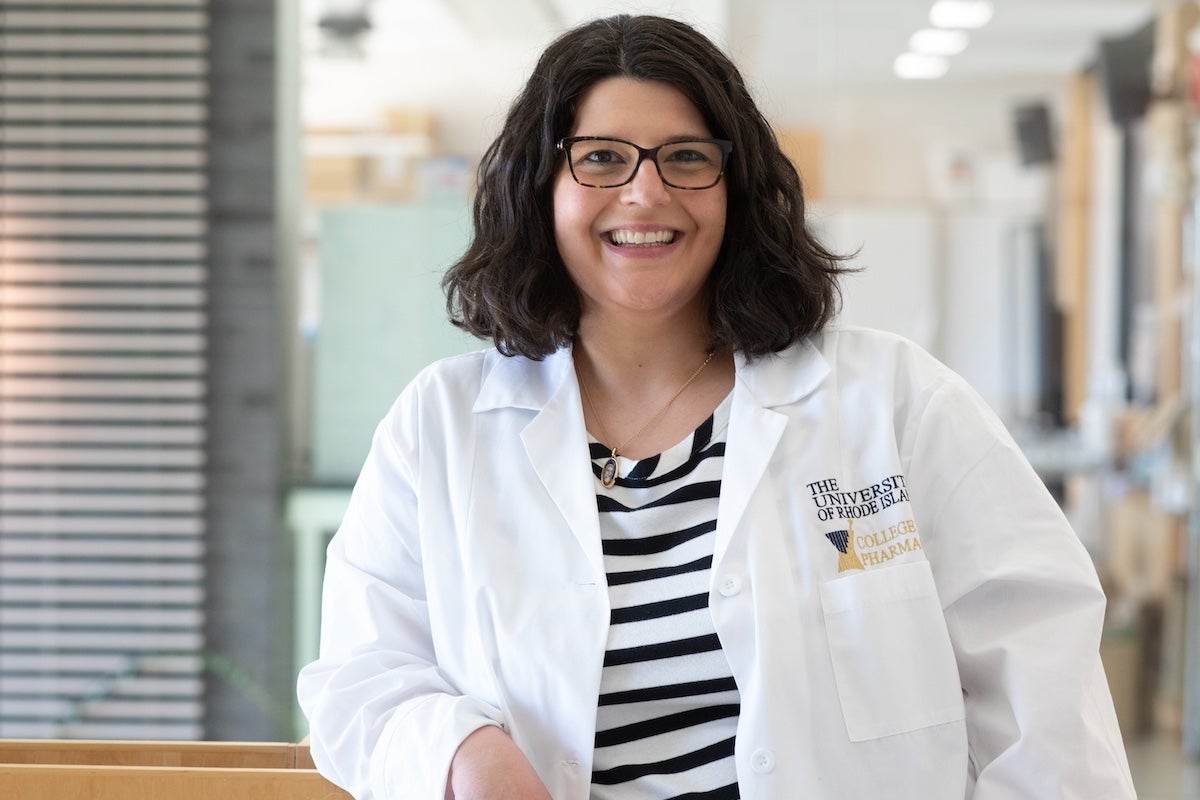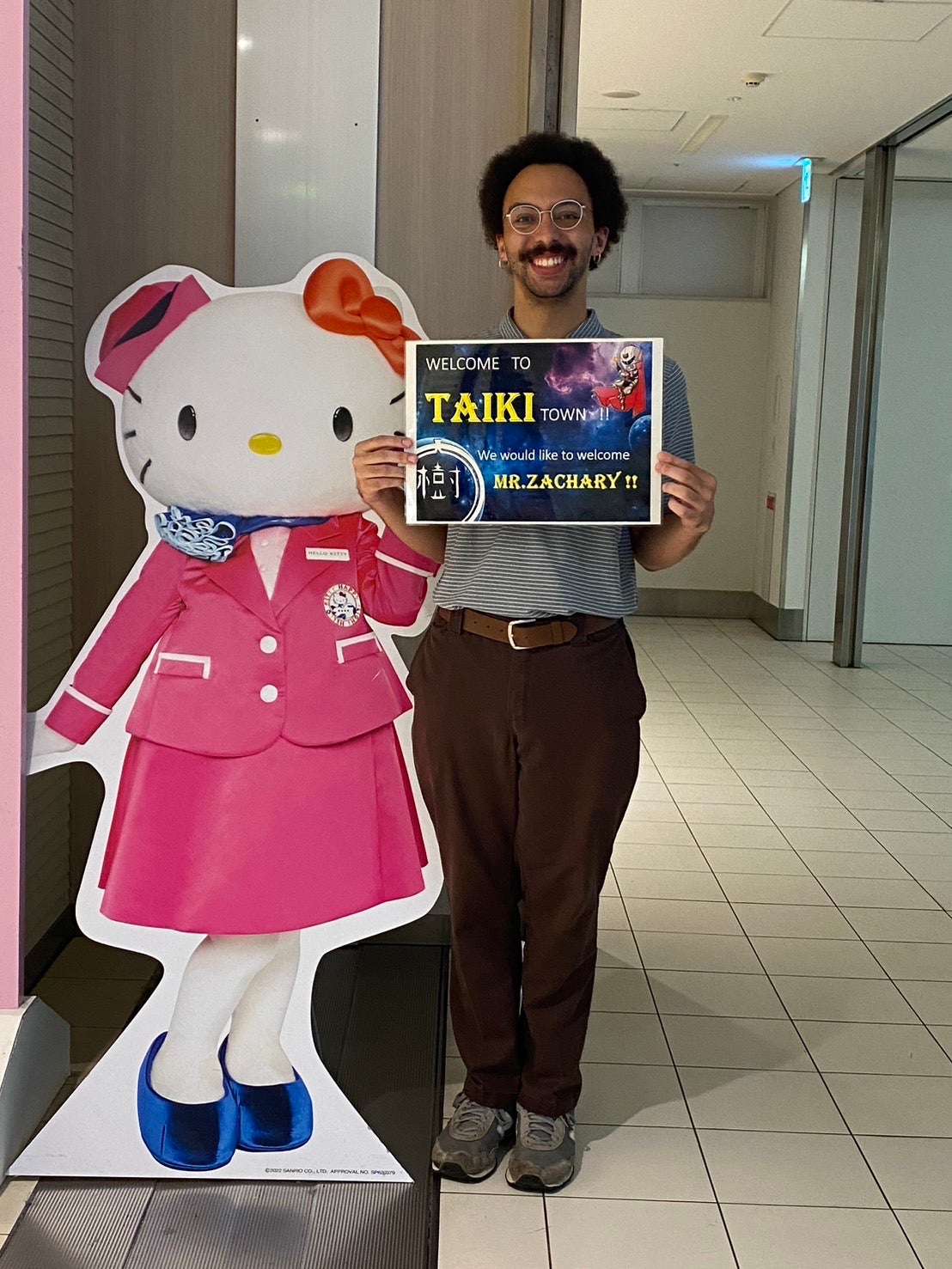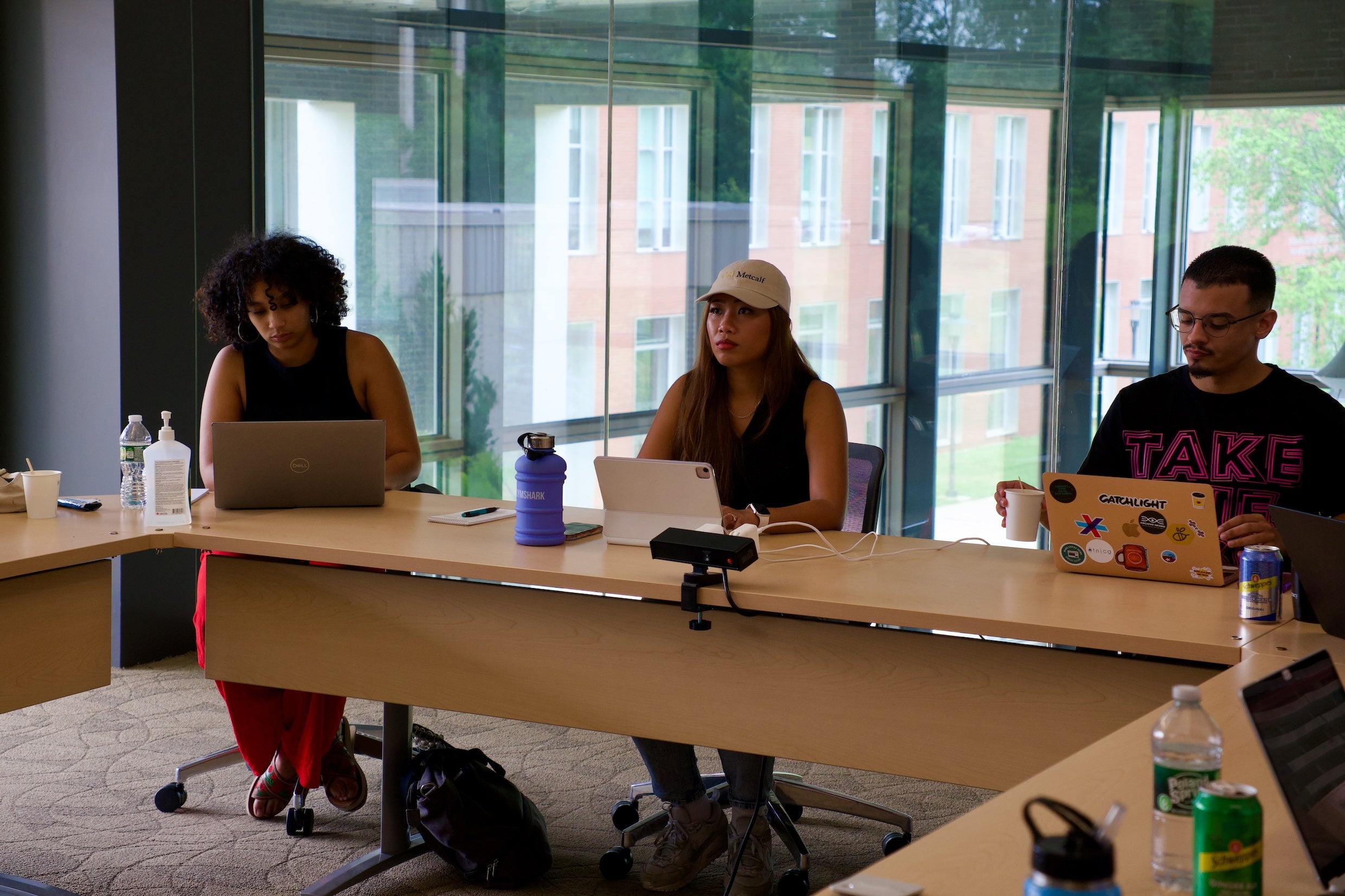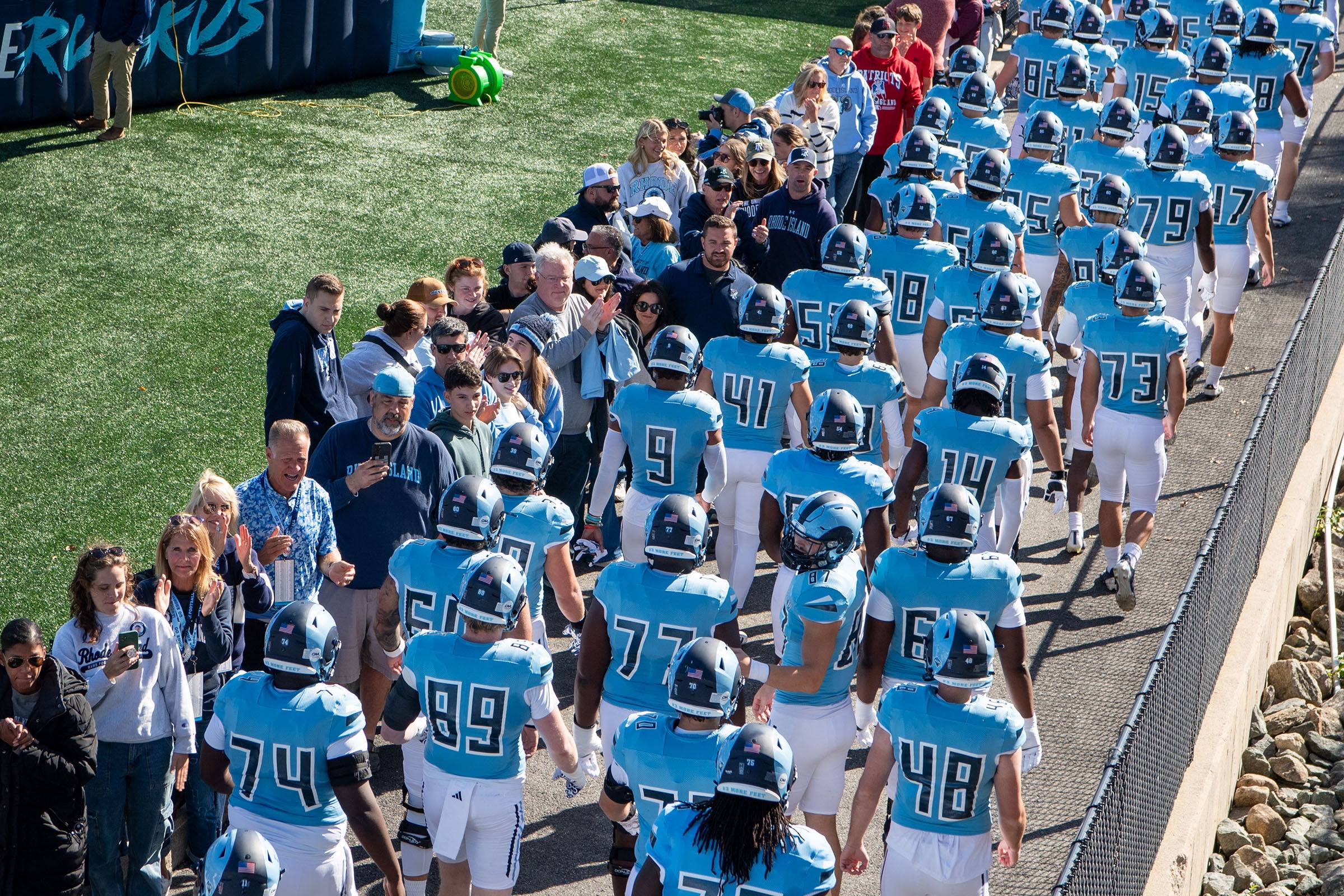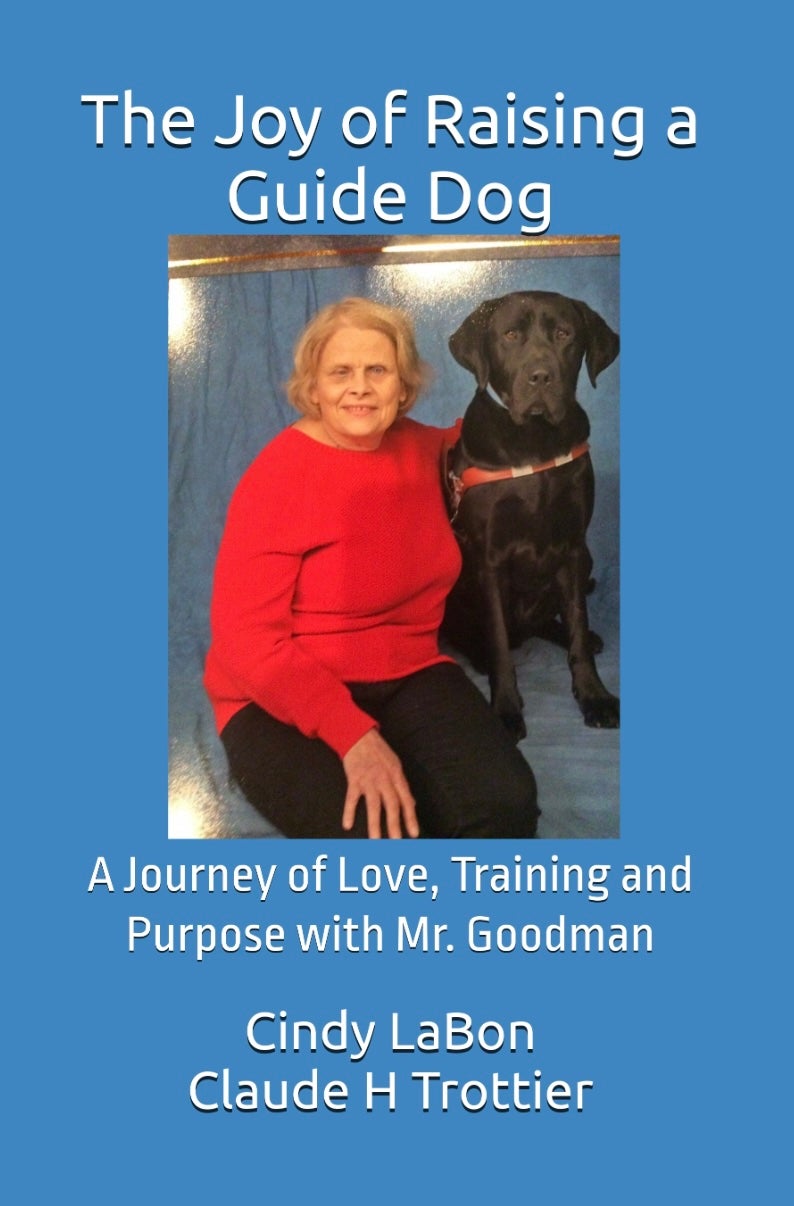Crime Fridays return to URI
KINGSTON, R.I. – Sept. 9, 2025 – The University of Rhode Island’s Forensic Science Partnership lecture series begins a new year on the crime beat on Sept. 12. One of the more unique lecture series in Rhode Island welcomes budding forensic scientists — with crime buffs and crime fighters — to the Beaupre Center on Friday afternoons.
Over the years, the seminar has brought international and local authorities to URI to talk about everything from the Boston Marathon bombing and New England organized crime to search dogs and Rhode Island’s coldest case. Visiting speakers have discussed arson and blood spatter, cell phones and medical examinations, coming to URI from the R.I. State Fire Marshal Office, Naval Criminal Investigative Service, U.S. Secret Service, Rhode Island Department of Health, the Rhode Island Public Defender’s Office, and Providence Mounted Command.
All lectures are open to the public at no cost and are held on Fridays at 3:30 p.m. in the Richard E. Beaupre Center for Chemical and Forensic Sciences (Room 100), 140 Flagg Rd., Kingston.
This fall’s speakers and topics are:

Sept. 12 — “All in a day’s work,” James Clift, Warwick Police Bureau of Criminal Identification. Clift recently retired as a detective for the Providence Police, the largest police department in Rhode Island, and is now a criminalist with the Warwick Police Department.
Sept. 19 — “Pulling off the world’s biggest heist,” Anthony Amore ’89, director of security, Isabella Stewart Gardner Museum, Boston. Amore is charged with the museum’s ongoing efforts to recover 13 works of art stolen in 1990. He is also the author of The Rembrandt Heist, new this fall.
Sept. 26 — “Digital forensics,” Victor Fay-Wolfe, professor of computer science, URI Computer Science. Fay-Wolfe is the founder and director of URI’s Digital Forensics and Cyber Security Center and has been principal investigator on more than $10 million in federal research grants.

Oct. 3 — “Defending the dumb,” Virginia Maxwell, University of New Haven. Maxwell is an expert in investigating animal cruelty with a focus on physical evidence and farm animal welfare. She uses crime data to predict hot spots for crimes against animals, in areas such as dog fighting, the meatpacking industry, industrialized agriculture, and horse racing.
Oct. 10 — “A hot topic,” Paul Manning and James Given, deputy fire marshals, Rhode Island State Office of the State Fire Marshal. The office is responsible for conducting investigations of all fires in Rhode Island where arson is suspected and is active in fire prevention education for all ages. Both deputies are certified fire investigators and previously worked for the Middletown and Narragansett fire departments.
Oct. 17 — “The role of microscopy in forensics,” Otto Gregory, professor of chemical engineering. Gregory is director of the URI Sensors and Surface Technology Partnership. His research has been funded by NASA, the National Science Foundation, Department of Energy, Defense Advanced Research Projects Agency, Department of Homeland Security, and U.S. Army, Navy, and Air Force, and many of the jet engine manufacturers, including Pratt & Whitney, Rolls Royce, General, Electric, and Honeywell.
Oct. 24 — “DNA,” Cara Lupino M.S.’04, Rhode Island Department of Health. Lupino is the chief forensic scientist for the Center of Forensic Sciences at the Rhode Island Department of Health. She has testified numerous times as an expert witness in forensic biology and forensic DNA.
Oct. 31 — “Overdose response strategy, trends, and emerging threats,” Bryan Volpe and Tom Chadronet, New England High Intensity Drug Trafficking Area. Volpe is a drug intelligence officer at NEHIDTA; Chadronet is a public health analyst with the agency, which assists federal, state, and local law enforcement agencies to lessen and eliminate drug threats in New England.
Nov. 7 — “The secret of USSS,” Mark Comorosky, special agent in charge, U.S. Secret Service. Comorosky is the special agent in charge of the Boston field office of the Secret Service.
Nov. 14 — “Explosive topics,” Kirk Yeager, senior forensic examiner, explosives, Federal Bureau of Investigation. Yeager analyzed the 2013 Boston Marathon bombing, as well as a number of other high-profile cases, including the 1993 World Trade Center bombing, 1995 Oklahoma City bombing, 2016 Brussels bombing, and 2002 Bali nightclub bombings.
Nov. 21 — Michael Jagoda ’91, URI assistant vice president of public safety and chief of police. Chief Jagoda joined URI in 2015, following a distinguished career in public safety with the Connecticut State Police. At URI, he oversees a department that has led URI to be recognized as a ‘safe campus.’ In 2023, Jagoda was a finalist for national Campus Safety Director of the Year.
Dec. 5 — “Shooting straight,” Alec Wyers, Rhode Island State Crime Laboratory. Wyers is a recent transplant to Rhode Island. He studied forensic science at Syracuse University.
(Schedule subject to change; join email list for updates)
The public can park in Lot 13 behind the Beaupre Center, which is open for general parking at 3 p.m. on seminar Fridays. High school students interested in forensics are also welcome. Those who cannot attend in person may view the lectures live online.
Previous lectures can also be viewed online.
To learn more about the URI Forensic Science Seminar Series and to be added to the series’ email list, contact kristen.curry@uri.edu or call 401-874-5602.
Latest All News
- URI study links microplastic exposure to Alzheimer’s disease in miceKINGSTON, R.I. — Sept. 10, 2025 — Micro- and nanoplastics prevalent in the environment routinely enter the human body through water we drink, foods we eat, and even the air we breathe. Those plastic particles infiltrate all systems of the body, including the brain, where they can accumulate and trigger Alzheimer’s-like conditions, according to a […]
- R/V Endeavor to be retired after 50 years, 700+ scientific missionsWHAT: After nearly 50 years of continuous operation, the Research Vessel Endeavor will be retired from service upon completion of its final mission on Sept. 20. Owned by the National Science Foundation and operated by URI’s Graduate School of Oceanography under a Charter Party Agreement, the ship was first launched in 1975. Over the […]
- URI graduate travels to Japan to teach EnglishKINGSTON, R.I. – Sept. 9, 2025 – Rosetta Stone classifies Japanese as a category 4 language, recognizing it as one of the most challenging languages to learn. According to the company’s estimates, a person needs about 88 weeks to become proficient in the language. While there are only a small number of universities in the […]
- URI’s Metcalf Institute creates connection between science and journalism with Metcalf Ocean Nexus AcademyKINGSTON, R.I.—Sept. 9, 2025—The inaugural Metcalf Ocean Nexus Academy (MONA) took place this summer. A new journalism fellowship created by the University of Rhode Island’s Metcalf Institute and Ocean Nexus, in collaboration with the The Uproot Project, this innovative program supports journalists exploring the deep connection between ocean issues and social justice. The University welcomed […]
- URI invites students and alums to bigger and better 2025 Homecoming, Sept. 19-21KINGSTON, R.I. – Sept. 9, 2025 – This year’s University of Rhode Island Homecoming Weekend promises to be bigger and better than ever, Friday through Sunday, Sept. 19-21. President Marc Parlange will deliver the annual State of the University Address on Friday, Sept. 19, at 4 p.m., in Edwards Auditorium, officially kicking off the weekend, […]
- The Joy of Raising a Guide DogThe Joy of Raising a Guide Dog Claude Trottier ’60 and Cindy LaBon (2025)



